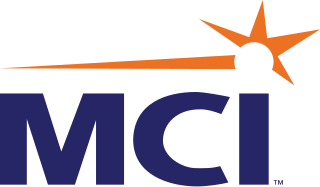Company history
Excel was founded in 1988 by Dallas entrepreneur Kenny Troutt and Steve Smith, as a long-distance reseller in the US telecom sector at the birth of telecom deregulation. In the mid-1980s, Smith developed an interest in the network marketing business model. He recognized the marketing and compensation strategy was suited for the marketing and distribution of services, rather than physical products. He designed and deployed his network-marketing strategy at a telecommunication startup company; this concept grew to become Excel—a billion-dollar publicly traded long-distance company. Excel reached a billion dollars in revenues, nine years faster than Microsoft. On May 10, 1996, Excel became the youngest company to join the New York Stock Exchange (NYSE), trading under the symbol (ECI). In June 1997, Excel acquired Telco Communications Group. Before the purchase, Excel had to resell long-distance service through other companies' networks, such as Frontier Communications. In November 1998, Excel merged with Teleglobe. Kenny Troutt retired as CEO on September 20, 1999, and was replaced by Christina Gold.
Excel–Teleglobe was taken over by Teleglobe's major shareholder, Bell Canada. Bell Canada then demoted Excel separately to a subsidiary and eventually spun it off to a private company, VarTec Communications, which required FTC approval to return to the private sector. After approval, VarTec continued the network marketing business model. On November 1, 2004, VarTec Communications (the parent corporation of Excel) unexpectedly filed for Chapter 11 bankruptcy protection. Excel sought to be released from its contracts with its independent representatives. This allowed it to continue to receive revenue from its large base of installed customers, without paying eternal commissions to the franchisees. Excel continued to operate, but ceased to be a multi-level marketing company. Although the change created cash enabling it to pay creditors, it was seen as shortsighted by the franchisee association, because it removed the primary source of sales and customer loyalty.
In September 2005, the Federal Communications Commission (FCC) approved the transfer of licenses to Comtel Telecom Assets, LLP and on June 12, 2006, the company emerged from bankruptcy under its new ownership, announcing a return to a slightly revised version of its former name, Excel Telecom. On March 16, 2010, Matrix Business Technologies announced it would acquire the customers and substantially all the assets of Comtel Telecom Assets, LLP.

MCI, Inc. was a telecommunications company. For a time, it was the second-largest long-distance telephone company in the United States, after AT&T. WorldCom grew largely by acquiring other telecommunications companies, including MCI Communications in 1998, and filed for bankruptcy in 2002 after an accounting scandal, in which several executives, including CEO Bernard Ebbers, were convicted of a scheme to inflate the company's assets. In January 2006, the company, by then renamed MCI, was acquired by Verizon Communications and was later integrated into Verizon Business.
Global Crossing Limited, was a telecommunications company that provided computer networking services and operated a tier 1 carrier. It maintained a large backbone network and offered peering, virtual private networks, leased lines, audio and video conferencing, long-distance telephone, managed services, dialup, colocation centres and VoIP. Its customer base ranged from individuals to large enterprises and other carriers, with emphasis on higher-margin layered services such as managed services and VoIP with leased lines. Its core network delivered services to more than 700 cities in more than 70 countries.

MCI Communications Corporation was a telecommunications company headquartered in Washington, D.C. that was at one point the second-largest long-distance provider in the United States.
Level 3 Communications was an American multinational telecommunications and Internet service provider company headquartered in Broomfield, Colorado. It ultimately became a part of CenturyLink, where Level 3 President and CEO Jeff Storey was installed as Chief Operating Officer, becoming CEO of CenturyLink one year later in a prearranged succession plan.

The breakup of the Bell System was mandated on January 8, 1982, by a consent decree providing that AT&T Corporation would, as had been initially proposed by AT&T, relinquish control of the Bell Operating Companies, which had provided local telephone service in the United States. This effectively took the monopoly that was the Bell System and split it into entirely separate companies that would continue to provide telephone service. AT&T would continue to be a provider of long-distance service, while the now-independent Regional Bell Operating Companies (RBOCs), nicknamed the "Baby Bells", would provide local service, and would no longer be directly supplied with equipment from AT&T subsidiary Western Electric.

Sprint Corporation was an American telecommunications company. Before being acquired by T-Mobile US on April 1, 2020, it was the fourth-largest mobile network operator in the United States, serving 54.3 million customers as of June 30, 2019. The company also offered wireless voice, messaging, and broadband services through its various subsidiaries under the Boost Mobile and Open Mobile brands and wholesale access to its wireless networks to mobile virtual network operators.
Innovate Corp. is an American public financial services company founded in 1994.

VocalTec Communications Inc. is an Israeli telecom equipment provider. The company was founded in 1985 by Alon Cohen and Lior Haramaty, who patented the first Voice over IP audio transceiver. VocalTec has supplied major customers such as Deutsche Telekom, Telecom Italia, and many others.

Golden Telecom is an internet services provider in Russia and the Commonwealth of Independent States (CIS). It was acquired by VimpelCom in 2007.

Embarq Corporation was the largest independent local exchange carrier in the United States, serving customers in 18 states and providing local, long-distance, high-speed data and wireless services to residential and business customers. It had been formerly the local telephone division (LTD) of Sprint Nextel until 2006, when it was spun off as an independent company. Embarq produced more than $6 billion in revenues annually, and had approximately 18,000 employees. It was based in Overland Park, Kansas.
VSNL International Canada or Tata Communications (Canada) ULC is an international telco carrier. The company is a subsidiary of Tata Communications, part of India's Tata Group and based in Montreal, Quebec. Part of their recent work has involved the updating of the CANTAT transatlantic cable system that connects the United Kingdom and Newfoundland under the Atlantic Ocean. The latest version of CANTAT, CANTAT-3, had a capacity of 5 Gbit/s in each direction across the Atlantic.

Frontier Communications Parent, Inc. is an American telecommunications company. Known as Citizens Utilities Company until 2000, Citizens Communications Company until 2008, and Frontier Communications Corporation until 2020, as a communications provider with a fiber-optic network and cloud-based services, Frontier offers broadband internet, digital television, and computer technical support to residential and business customers in 25 states. In some areas it also offers home phone services.

RCN Corporation, originally Residential Communications Network, founded in 1993 and based in Princeton, New Jersey, was the first American facilities-based ("overbuild") provider of bundled cable telephony, cable television, and internet service delivered over its own hybrid fiber-coaxial local network as well as dialup and DSL Internet service to consumers in the Boston, Chicago, Los Angeles, New York City, the Lehigh Valley in eastern Pennsylvania, and Washington, D.C. areas.
Charles Sirois, is a Canadian businessman. He is the founder, controlling shareholder, chairman and CEO of Telesystem Ltd., a Canadian private equity firm. Effective from March 1, 2017, he has been the CEO and chairman of OnMobile Global Ltd, India
Kenny A. Troutt is an American businessman. He founded Excel Communications, a Texas-based telecommunications company that offered long distance phone service. Troutt became a billionaire in 1998 when Excel was sold to Teleglobe for $3.5 billion. As of 2023, his net worth was estimated at USD$ 1.5B.

FairPoint Communications, Inc. was an American operator of communication services. FairPoint's services include local and long-distance phone service, data, Internet, broadband, television, business communications solutions and fiber services. Headquartered in Charlotte, North Carolina, it served 31 markets in 17 states, mostly in rural areas. FairPoint, along with Frontier Communications, had been at the forefront of acquiring Verizon landline operations.

Winstar Communications was an American telecommunications company that provided broadband services to business customers. Winstar owned and operated a broadband network in 60 major markets in the United States, including each of the top 30 U.S. markets and ten markets internationally in Europe, Asia, and Latin America.
AT&T Corp. v. Excel Communications, Inc., 172 F.3d 1352 was a case in which the United States Court of Appeals for the Federal Circuit reversed the decision of the United States District Court for the District of Delaware, which had granted summary judgment to Excel Communications, Inc. and decided that AT&T Corp. had failed to claim statutory subject matter with U.S. Patent No. 5,333,184 under 35 U.S.C. § 101. The United States Court of Appeals for the Federal Circuit remanded the case for further proceedings.
The history of AT&T dates back to the invention of the telephone. The Bell Telephone Company was established in 1877 by Alexander Graham Bell, who obtained the first US patent for the telephone, and his father-in-law, Gardiner Greene Hubbard. Bell and Hubbard also established American Telephone and Telegraph Company in 1885, which acquired the Bell Telephone Company and became the primary telephone company in the United States. This company maintained an effective monopoly on local telephone service in the United States until anti-trust regulators agreed to allow AT&T to retain Western Electric and enter general trades computer manufacture and sales in return for its offer to split the Bell System by divesting itself of ownership of the Bell Operating Companies in 1982.
Birch Communications was an American provider of IP-based communications, network broadband, cloud computing, and information technology services to small, mid-sized, enterprise and wholesale business customers in the United States, Canada and Puerto Rico. It was acquired by Fusion Connect in 2018 and integrated into the company. Founded in 1996 in the wake of the 1996 Telecommunications Act, several years later the company began acquiring other telecom companies in an effort to increase its network size and service offerings. Birch Communications raised $77.5 million in funding in 2011, and $110 million in funding in 2012 after it financed a new $90 million facility.









